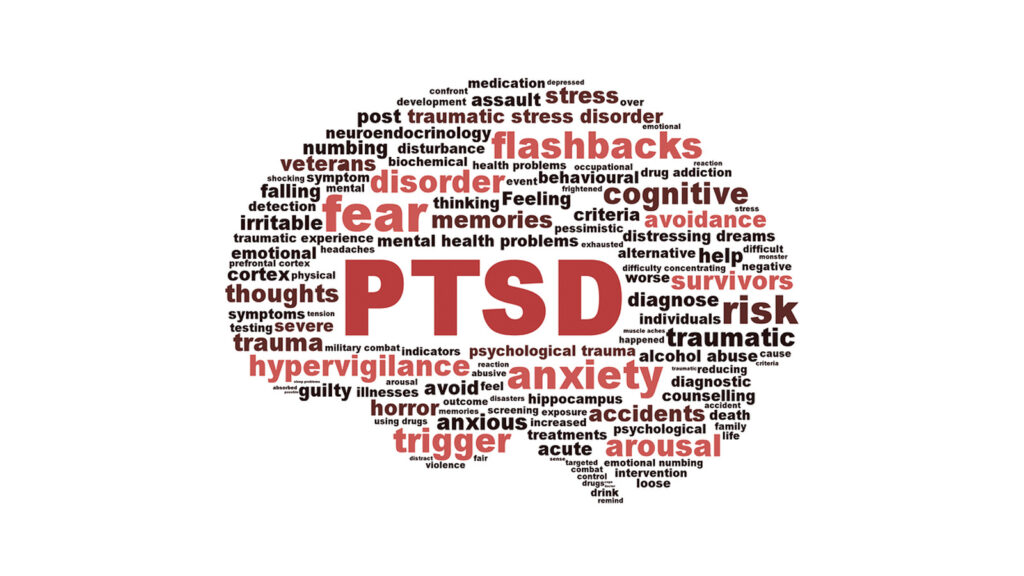
The Link between PTSD and Depression
Both depression and PTSD can affect your mood, interests, energy levels, and emotions. It is possible to have both of these conditions at once, and your risk of having one may increase if you have the other.
It is possible to have both post-traumatic stress disorder (PTSD) and depression at the same time. They are sometimes confused for one another, as they have similar symptoms.
Traumatic events can lead to PTSD. Symptoms can manifest within 3 months after the distressing event. Depression may follow traumatic events, too.
Research suggests 30% to 50% of people with PTSD experience depression. Additionally, people with PTSD are three to five times more likely to develop depression than individuals without PTSD.
Read on to learn more about PTSD and depression, as well as treatment options you may consider for both.
PTSD vs. Depression
Shared symptoms of PTSD and depression
PTSD and depression can share these symptoms:
- trouble sleeping
- trouble focusing
- increased irritability
- loss of pleasure or interest in activities
Research suggests that people with PTSD are more likely to have depression. Deciphering between individual symptoms can help you and your doctor find the right treatment.
For example, people with PTSD may have greater anxiety around specific people, places, or things. This is likely the result of the traumatic event.
Depression, on the other hand, may not be related to any issue or event that you can pinpoint. Life events can make depression worse, but depression often occurs and worsens independently of any life events.
Treatment options
Doctors use many of the same treatments for both PTSD and depression. This includes prescription medications, talk therapy, group therapy, and lifestyle strategies.
With both conditions, it’s important to seek treatment as soon as possible. Letting either condition linger — and likely worsen — for months, or even years, can harm both your physical and mental health.
Healthcare providers who treat PTSD are typically also trained to treat depression.
PTSD
The most common treatments for PTSD (depending on symptoms and prescriber preference) can include:
- Prescription medications: These include antidepressants such as paroxetine and sertraline.
- Talk therapy: This includes cognitive behavioral therapy (CBT), which can help you come to terms with a traumatic event and gain control of your fear. It may also include eye movement desensitization and reprocessing (EMDR). This involves recalling a traumatic
event while making eye movements, and it can reduce the symptoms of PTSD.
- Support groups: These are meetings in which you can discuss your feelings and learn from people who share similar experiences.
Depression
The most common treatments for depression (depending on symptoms and prescriber preference) can include:
- Prescription medication. Medications include antidepressants, antipsychotic medicines, anti-anxiety medicines, and sleep aids.
- Talk therapy or CBT can help you learn how to cope with feelings and emotions that seem to worsen the symptoms of depression. This can also include interpersonal therapy (IPT), which helps you improve your communication skills and help you cope with issues that may be contributing to your depression.
- Natural products: While the FDA has not approved any natural products for treating depression, some people have reported that vitamin D and St. John’s wort have helped ease their symptoms.
It is important to talk with your doctor before starting any medications or natural products. They may interact with other medications that you are taking or have other side effects.
Where to find help
If you believe you have either PTSD or depression, make an appointment to see a healthcare professional. They can recommend or refer you to a mental health specialist for evaluation and treatment.
Key Takeaway
People with PTSD and depression may experience long-term mood and anxiety issues as a result of either condition — some people can even have both.
Early treatment for both PTSD and depression can help you find effective results. It may also help you prevent long-term or chronic complications of either condition.
If you think you have symptoms of PTSD or depression, talk to us. We can help you begin the process of finding an appropriate treatment plan for your symptoms.
Experience mental health care as extraordinary as you are.
Site Map
Contact
- +1 (780)-953-0173
- +1 (780)-884-1985
- [email protected]
- [email protected]
At Open-Minded Service Centre Inc., we acknowledge that we are on Treaty 6 Territory, Métis Homelands, and Alberta Region 4. This land is the traditional home of many First Nations, including Nehiyawak/Cree, Tsuut’ina, Niitsitapi/Blackfoot, Otipemisiwak/Métis, Nakota Sioux, Déné, Anishinaabe/Ojibway, Inuit, and others. We honor their stewardship of this land and commit to continuing this legacy through our work.
